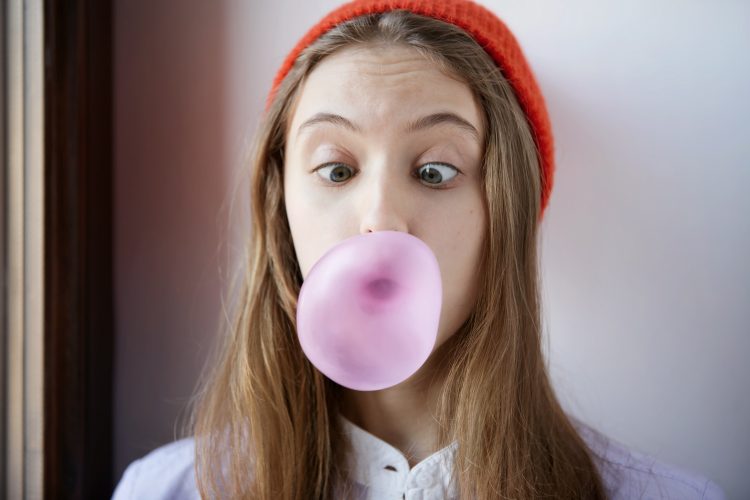
Is It Good to Chew Gum While Working Out?
For most people, working out is a time to focus on their physical exertion, pushing themselves to achieve their fitness goals. But what about chewing gum? Is it beneficial or detrimental to your workout routine? This article delves into the topic of chewing gum while working out, exploring its potential effects, and providing expert advice to help you make an informed decision.
Before diving into the details, it's worth noting that individual experiences and preferences may vary, so it's essential to consider your personal circumstances when deciding whether or not to chew gum during exercise.
Gum Chewing and Saliva Production
Increased Saliva Production
One of the primary effects of chewing gum is increased saliva production. Saliva plays a crucial role in keeping your mouth moist, aiding in digestion, and neutralizing acids that can damage your teeth. During exercise, especially intense workouts, your body naturally produces more saliva to help regulate body temperature and prevent dehydration. Chewing gum further stimulates saliva production, which can be beneficial for keeping your mouth hydrated and reducing the risk of dental issues.
Potential Drawbacks
While increased saliva production can be beneficial, excessive saliva buildup during exercise may lead to discomfort, especially during activities like running or cycling. The constant swallowing can interrupt your breathing rhythm and make it challenging to maintain a steady pace.
Gum Chewing and Nutrient Absorption
Enhanced Nutrient Absorption
Some studies suggest that chewing gum during exercise may improve nutrient absorption. The increased saliva production helps break down certain nutrients, making them more accessible for absorption by the body. This can be particularly beneficial for athletes looking to maximize their nutritional intake during and after workouts.
Potential Interferences
On the other hand, excessive gum chewing could potentially interfere with nutrient absorption. The constant swallowing of saliva can dilute stomach acid, which plays a role in breaking down proteins and other nutrients. As a result, it's crucial to avoid excessive gum chewing during exercise to prevent potential nutrient absorption issues.
Gum Chewing and Energy Levels
Temporary Energy Boost
Chewing gum can provide a temporary energy boost due to the increased blood flow to the brain. The act of chewing stimulates the trigeminal nerve, which sends signals to the brain, leading to increased alertness and energy levels. This can be beneficial during longer workouts when energy levels start to decline.
Potential Crash
While chewing gum can give you a quick energy boost, it's important to note that this effect is temporary. Once the gum is digested, your energy levels may crash, leaving you feeling even more fatigued than before.
Gum Chewing and Performance
Improved Performance
Research suggests that chewing gum during exercise may enhance performance in certain activities. A study published in the Journal of Strength and Conditioning Research found that cyclists who chewed gum during a time trial improved their performance by reducing their perceived exertion levels.
Minimal Impact
However, it's important to note that the performance-enhancing effects of chewing gum are relatively modest and may vary depending on the individual and the type of exercise. For most people, chewing gum is unlikely to have a significant impact on their overall performance.
Expert Advice
Consider Your Personal Preferences
When deciding whether or not to chew gum while working out, consider your personal preferences and the type of exercise you're doing. If you find that chewing gum helps you stay hydrated, improves your energy levels, or enhances your performance, then it may be beneficial for you.
Avoid Excessive Chewing
It's crucial to avoid excessive gum chewing during exercise to prevent potential issues with saliva buildup, nutrient absorption, and energy crashes.
Choose Sugar-Free Gum
If you decide to chew gum during your workout, choose sugar-free varieties to avoid consuming unnecessary calories and protecting your teeth from decay.
FAQ
Q: Is chewing gum bad for my teeth?
A: Excessive gum chewing can be bad for your teeth if the gum contains sugar. Sugar feeds the bacteria in your mouth, leading to cavities. Choose sugar-free gum to avoid this problem.
Q: Can chewing gum help me lose weight?
No, chewing gum itself does not help you lose weight. It may temporarily suppress your appetite, but the calories in the gum will offset any weight loss benefits.
Q: What kind of gum is best for working out?
Sugar-free gum with xylitol or sorbitol is the best choice for working out. These sweeteners help prevent cavities and promote saliva production.
Conclusion
Whether or not to chew gum while working out is a personal choice. Consider your preferences, the type of exercise you're doing, and the potential benefits and drawbacks discussed in this article. By following the expert advice provided, you can make an informed decision that aligns with your fitness goals.
Are you interested in the topic of chewing gum while working out? Share your experiences or ask any questions you have in the comments section below.

Image: www.newfoodmagazine.com
:quality(85):extract_cover()/2018/10/08/658/n/1922729/tmp_5ONSO5_7aeaf30d69f27501_gum.jpg)
Image: www.popsugar.com
The Reason Chewing Gum Helps Your Ears While Flying — and Why Some Experts Advise Against It Mar 2, 2023Prevents Dry Mouth. Whether you run with your mouth closed most often or you’re an open-mouth breather when you run, chewing gum can help to keep your breath fresh. Keeping your mouth closed for long periods of time while running can lead to stale breath. On the other hand, breathing heavily through your mouth while running can cause dry